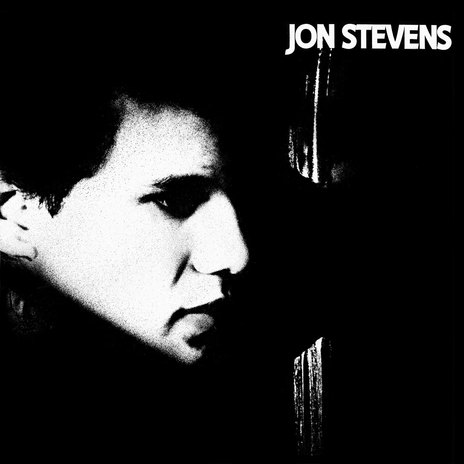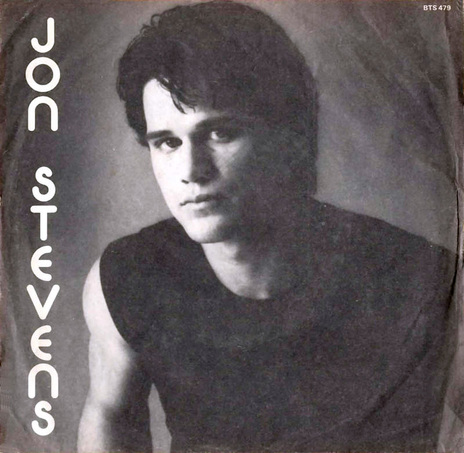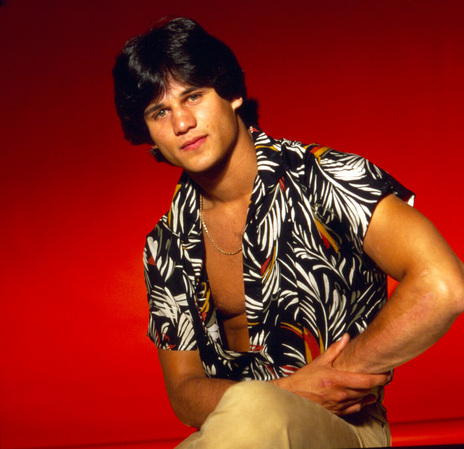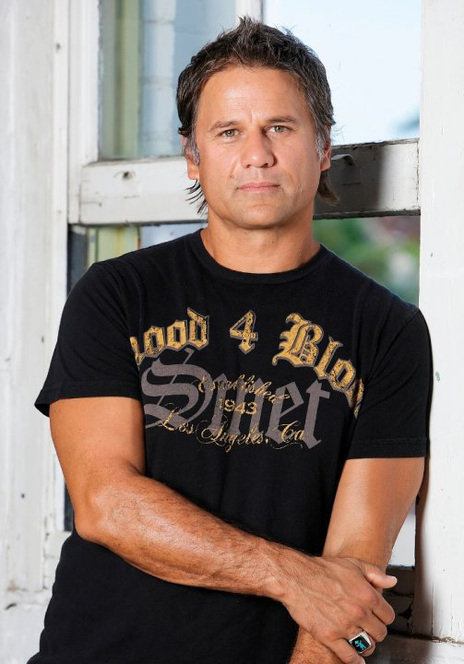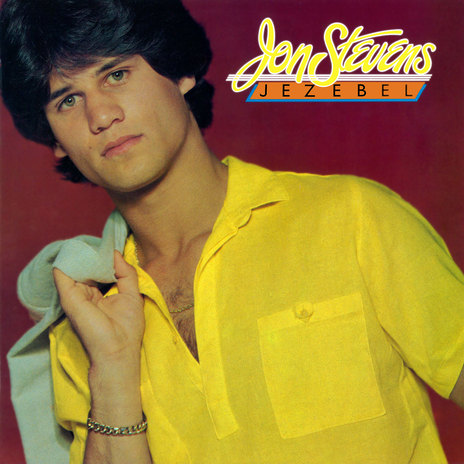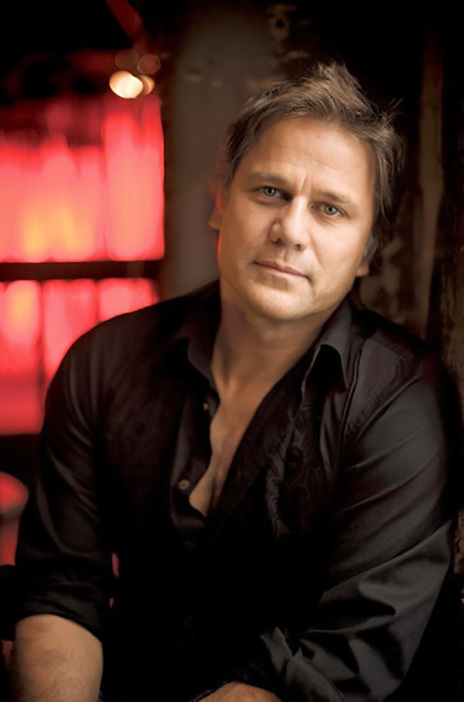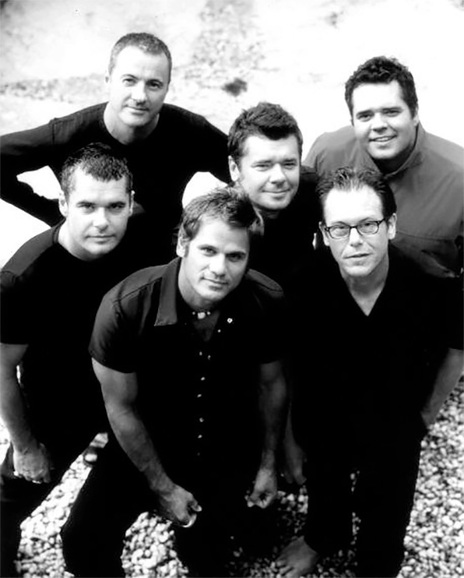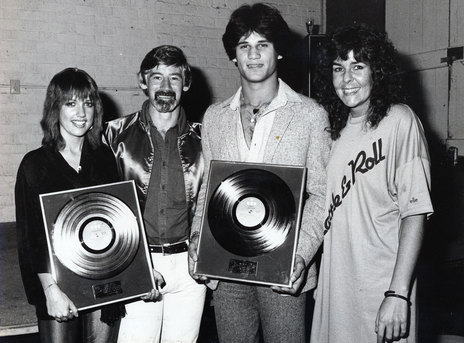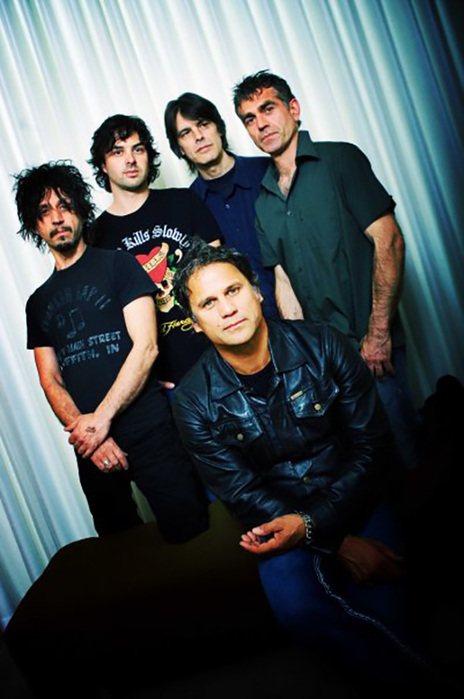Studio owner Rocky Douché had just built the new 24-track Marmalade facility in Wellington and was looking out for local talent to record and manage via his Marmalade Artists. Marmalade was chosen to record the second album by Sharon O’Neill, the first local signing to CBS Records’ New Zealand operation. Former Philips boss John McCready had founded the first CBS local office in January 1978 and he was a man with a mission to sell local recordings.
“Danny Ryan discovered Jon Stevens at a talent quest in Upper Hutt when Jon was 15 or 16 years old,” Rocky Douche told me in 2013. “Danny came back to us raving about this young man who was very talented. Danny became involved with Marmalade Artists and we physically and musically groomed Jon for close on a year. We had him taking singing lessons and someone looking after his appearance.”
“In the process of looking for material for him to record, Bob Smith came back from London. He had a cassette of demos and one of the tracks was ‘Jezebel’. We demoed ‘Jezebel’ and sent it up to John McCready of CBS Records. John loved it. That was when we licensed Jon Stevens to CBS Records. The final recordings of ‘Jezebel’ and ‘Montego Bay’ were done by producer Jay Lewis, from Los Angeles. The original 24-track ‘Jezebel’ demo was done by Steve Robinson and some parts of the original demo were used in the final mix. Jon Stevens still has the record for being the only New Zealand artist to have back-to-back consecutive No.1 singles – ‘Montego Bay’ knocked ‘Jezebel’ off the top spot.”
‘Jezebel’ entered the NZ Singles Chart on November 2, 1979, hit No.1 in early December and stayed there for five weeks. ‘Montego Bay’ entered the charts on January 18, 1980 at No.1.
‘Jezebel’ entered the NZ Singles Chart on November 2, 1979, hit No.1 in early December and stayed there for five weeks. ‘Montego Bay’ entered the charts on January 18, 1980 at No.1. It knocked his first single off the top spot and stayed there for two weeks. The following month Jon Stevens would have another hit single, his duet with Sharon O’Neill ‘Don’t Let Love Go’, which made it to No.5.
A new track, ‘Loving You’, produced by seasoned Wellington musician and producer Steve Robinson, made it to No.28 in June 1980 and later the same year, the Wayne Mason song ‘Working Class Game’, produced by Steve Robinson, did not chart.
John McCready (who had moved to CBS Australia in 1981), was asked by AudioCulture in 2014, whether he was frustrated by the singer walking away from pop success.
“I had gone by then. I thought I failed him in that I never knew he wanted to be a rock singer. It never crossed my mind. Originally they sent the tape up of ‘Jezebel’ and it was a massive hit. I chose the next one ‘Montego Bay’, he never objected and it was a massive hit for us. When I left and had gone to Australia and I learnt that he never wanted to be a pop singer, it was quite a surprise.”
“He had that terrible experience in Wellington when he was singing at the Elton John show and he got booed when he came on stage,” recalled McCready. “Because he had two No.1 singles he became very untrendy with the music mob. It was very uncool to be a pop singer – that must have affected him. I was quite surprised when I heard that he never wanted to do those songs. I guess it shows how little we talked to the guy.”
Reflecting on his success as a teen, Stevens described himself as, “an accidental pop star” in a 2011 video biography. “I was over-exposed and I didn’t even know what over-exposed meant. I was over being famous. I was about as famous as you could get in New Zealand. I was walking down an alley at night and ran into a bunch of blokes. One of them recognised me and said, ‘Jon Stevens!’ Another bloke says, ‘Let’s get him.’ I had to stand there and fight or run. I needed to get out of the place.”
Lance Reynolds, Australian band Air Supply’s co-manager, visited New Zealand and offered Stevens an escape route. Reynolds read about Stevens, got a cassette tape delivered to him by CBS and met him.
Stevens got on well with Reynolds, who made an offer he could not refuse, to travel to California and record a solo album for his Big Time Records label – “I will take you to America. Want to go to America?”
“I had nothing else to do,” recalls Stevens. “I jumped on a plane. What an adventure. It’s early 1981 – I am working with some of the best musicians in the world and I am living in Beverly Hills. I was recording a solo record. Lance was the first one to get me writing. There I was, just a teenager.”
Stevens enjoyed working with musicians like guitarist Steven Lukather (Toto), guitarist and bassist Nathan Watts (Stevie Wonder) but when he refused to sign a song publishing deal with Big Time – “All hell broke loose,” Stevens recalls. “And I was ostracised.”
As Noiseworks, they built up a following on the pub rock circuit and Browning helped them get signed to CBS Records.
Two singles were released by Big Time, a remake of ‘Jezebel’ and ‘Lover My Love’ but neither single was successful. The Big Time album Jon Stevens was released in 1982.
Stevens moved from Los Angeles to Australia and well-known music manager Michael Browning (his short-lived Deluxe label roster included Toy Love and INXS, and he managed AC/DC 1974-79) introduced Stevens to Stuart Fraser. “Stuart and I were like brothers,” says Stevens. “We were the same age and liked the same things. After my experience overseas and in New Zealand starting out, where I had so much pressure on me, I just wanted to hang out with a like-minded guy and make some music. Noiseworks grew out of that brotherhood.”
Stevens and Fraser formed the band The Change and released an independent single, ‘Forever Young’ in 1984, and gigged with bassist Steve Balbi (from Kevin Borich Band). Kevin Nicol joined on drums in 1985 and keyboards player Justin Stanley completed the line-up in 1986. As Noiseworks, they built up a following on the pub rock circuit and Browning helped them get signed to CBS Records.
The first single, ‘No Lies’, went to No.19 on the Australian sales charts in December 1986 and the second, ‘Take Me Back’, went to No.6 in May 1987. The band’s self-titled debut album reached No.2 on the sales charts in July 1987 and sold over 210,000 copies (triple platinum). In New Zealand ‘No Lies’ reached No.15 on the Singles Chart in June 1987.
“Our schedule,” recalls Stevens, “was eight months on the road, 3 months in the studio, 1 month off.” English producer Chris Kimsey (Rolling Stones) produced their second album Touch. The title track reached No.11 in Australia and No.44 in NZ. The album was released in November 1988 and reached No.4 on the Australian Album chart, selling over 150,000 copies.
The band wanted to produce their third album themselves. In late 1989 they did just that, but Sony Music Australia (Sony having purchased CBS) rejected the album and brought in USA producer Randy Jackson to record additional rock songs. Two singles were released from the band’s self-produced sessions – ‘Freedom’ went to No.30 on the charts in June 1990 and ‘Miles And Miles’ went to No.26 in December 1990.
The album Love Versus Money was released in July 1991 and debuted at No.1 on the Australian Album Chart. The Randy Jackson produced FM rocker ‘Hot Chilli Woman’ charted at No.7 in July 1991 (No.32 NZ) and the power-ballad ‘R.I.P. (Millie)’ reached No.26 in October 1991 (No.23 NZ). The group’s cover of Sly & the Family Stone’s ‘I Want to Take You Higher’ – from their first session – did not chart.
In early 1992 Jon Stevens joined the rock star cast of the stage show Jesus Christ Superstar as Judas.
The difficult third album had fractured the band. In early 1992 Jon Stevens joined the rock star cast of the stage show Jesus Christ Superstar as Judas. He was in good company with John Farnham as Jesus (of course) and Kate Ceberano as Mary Magdalene.
Noiseworks played their final concert at Selina’s, Sydney, in March 1992, recording The Beatles’ ‘Let It Be’ as a swansong and a bonus track on their Greatest Hits album, which made it to No.6 on the Australian Album Chart in November 1992.
“We definitely ended prematurely,” said Stevens. “There is no doubt about that in my mind. The creative differences that were going on and the drug problems that were prevalent were undermining the fabric of the brotherhood. It’s a rock and roll band – shit happens!”
Steve Balbi and Justin Stanley became the recording and producing team Electric Hippies and Stuart Fraser joined Stevens on his new solo recording – the October 1993 album Are U Satisfied? The album Circle followed in 1996.
In 2000, Stevens became an Australian citizen, wrote the official song for the Sydney Olympics Torch Relay, ‘Carry The Flame’ and he started to collaborate with INXS, formally becoming their lead singer in October 2002. In 2003 they released a single ‘I Get Up’ but Stevens left the band in 2004, frustrated by the band’s slow creative process.
He started to collaborate with INXS, formally becoming their lead singer in October 2002.
Stevens returned to his solo career and released Ain't No Life For The Faint Hearted (2004) and The Works (2005), part of the Liberation Blue series of albums where musicians revisit their hits in an acoustic radio-friendly setting.
In Sept 2009, a routine heart scan revealed that Stevens had a seriously blocked artery and he went immediately to the Prince Of Wales Hospital. Open-heart surgery was undertaken but due to complications – infection and fluid around the heart – the 46 year old Stevens had a month long stay in hospital.
With a move to a new label, Universal Music, Stevens quickly released Changing Times (August 2011) and an album of soul covers Testify! (November 2011).
In 2013, Stevens returned to rock in the international super-group The Dead Daisies. Players in the band have credentials ranging from Guns ‘N’ Roses to Thin Lizzy to Whitesnake. The first single ‘Lock ‘N’ Load’ featured a notable guest, Slash. The group promptly opened for ZZ Top and Aerosmith Australian tours and joined the 25 date 2013 North American “Rockstar Uproar Festival” alongside Jane’s Addiction, Alice In Chains and Coheed And Cambria.
Also in 2013, Jon Stevens provided 'Fly', the theme to the Disney hit movie Planes.
In 2014 Stevens is in the studio with Steve Balbi working on a new Noiseworks album.
